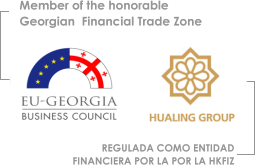NEWS

The president of the special commission of financial crimes: "The digital economy is not taxed at the level it deserves"
Interview with Czech Liberal Democrat MEP Petr Ježek, who chairs the new commission of financial crimes and tax evasion and circumvention of the European Parliament.
This new parliamentary commission will work until March 2019 and will continue the work of the previous commission of money laundering and tax evasion and evasion, which arose after the scandal of the so-called “Panama papers”, the network of companies created in tax havens To evade taxes. His main work will be financial crimes and tax fraud, but he will also focus on the digital economy, which according to its president, Petr Ježek, is a sector that pays less taxes than it should.
The new commission will focus on financial crimes, tax evasion and avoidance. Can you give some concrete examples?
The mandate of this commission is broader than before. The previous commissions (TAX1 and TAX2), only dealt with fiscal decisions. The commission of the "Panama papers" dealt with the disclosures discovered in the Panama documents, including money laundering, tax evasion and tax avoidance. This fourth commission must first rely on the work of the previous ones to see how their recommendations are being addressed and implemented, but it will also analyze the tax fraud discovered in the so-called “Paradise papers” - another filtering of documents that show how different people and corporations internationals hide their wealth and minimize tax obligations - digital tax issues, as well as the problem of the Member States that sell citizenship.
You were a rapporteur for the commission of the "Panama papers", which also investigated money laundering and tax fraud. Following that work, what does the EU have to do?
It is a continuous process. The previous commission presented recommendations and this commission will analyze how they are being addressed or implemented. We will also see how to tax the digital economy because it is not taxed as it should be. It is not a crime, but current law does not allow the digital economy to become serious at the level it deserves. Tax rates for digital companies are a fraction of what normal companies pay. And some American digital companies generate more than half of their income outside the United States, but they are almost exclusively taxed there.
In recent years, whistleblowers and investigative journalism have been crucial in uncovering tax fraud and financial crimes. What else can the EU do to protect whistleblowers to continue revealing scandals?
We have not yet reached a formal conclusion, but the European Commission recently published a draft directive on the protection of whistleblowers. There are several measures to consider, such as financial compensation and legal guarantees, if, for example, they lose their jobs due to the reporting of irregularities. More effort is required to explore the issue, partly because the situation is different in different Member States.
When it comes to trusting our financial and tax systems, where are we?
It depends. For example, in my country, the Czech Republic, it seems to me that nobody is interested in these issues, but in several Member States, I have read that tax evasion and tax avoidance are an important concern for citizens. If citizens have the feeling that they are treated unfairly and that certain people and companies can avoid taxes, this, of course, undermines confidence in the entire financial system and perhaps even in governance in general. On the other hand, if we do things right with taxes, making them more fair, this could help close the gap with those who feel abandoned by globalization.
Some examples with the big multinationals are amazing. They should not be able to sell their products, whether cars or data, in one EU country and pay taxes mainly in another or outside the EU. That is clearly not fair. It makes no sense, but globalization and new technologies allow it. This should be fixed. There are legislative proposals that are now being negotiated by the Member States, represented in the EU Council. It is up to them if they will support a common consolidated corporate tax base in the EU. There are still countries that benefit from certain tax schemes and tend to block the proposals, but I hope that sooner or later the pressure from other Member States, Parliament and especially citizens will allow new rules to be adopted.



